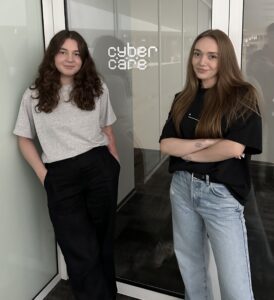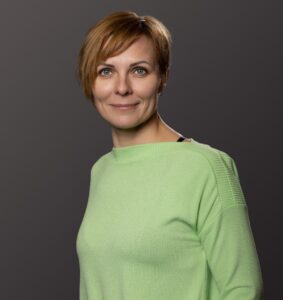Speaking about the KTU New Media Language studies, the girls say that the main focus of their studies is on how people communicate online, and why do they do it in a certain way.
“Our attention to the way people speak and our in-depth knowledge of the basic structures of communication is a very important part of customer service. Especially in the world of cybersecurity, where it sometimes seems so difficult to navigate,” they say.
Balance of work and studies
Gedžiūtė admits that it is not easy to combine studies and work, but the skills acquired at work can often be applied in lectures, and the knowledge gained in lectures is valuable for work.
“In a job that requires a lot of attention and persistence, the most important thing I have learnt is time management. No one ever said that being a working student was easy, but with a strong desire, anything is possible,” says the KTU student.
She adds that since New Media Language study programme is in a field of linguistics, students are taught how to use language properly and how to produce texts of different genres, such as press releases, articles, as well as more technical texts, such as correct, informative, and clear letters.
She is also happy to expand her skills: “It’s easier for me to see what my client is dealing with, even if they find it difficult to express themselves in emails or conversations.”
Creativity is an important skill for the market
Giedrė Gudauskienė, Head of Communications at CyberCare, a colleague of Ugnė and Vakarė, also notes that the staff with humanities’ background can provide valuable insights in the IT sector.




